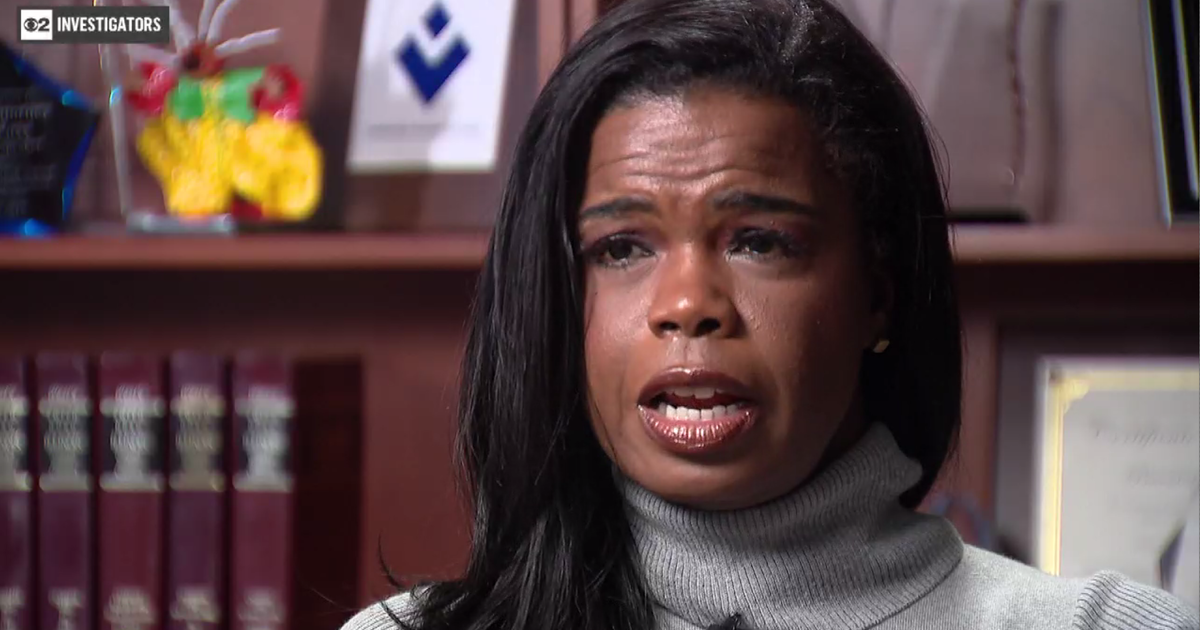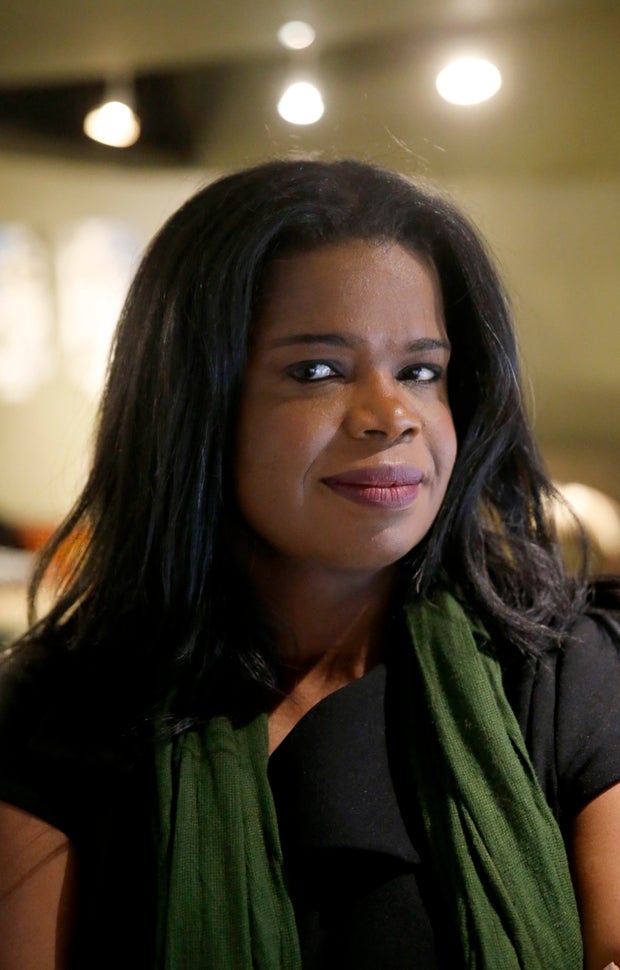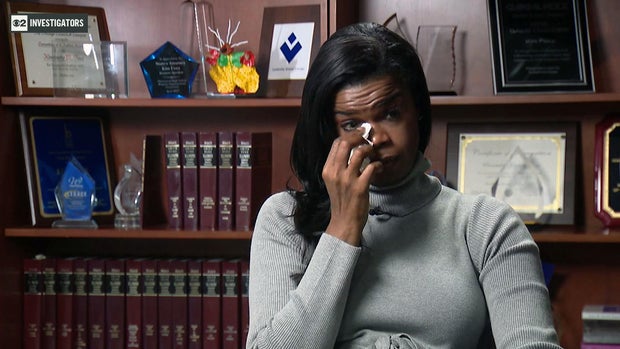Illinois
Foxx calls findings on how many Black women were victims of crime in 2022 "jarring"

CHICAGO (CBS) — Long before Kimberly Foxx won the 2016 election and became the first Black woman to serve as Cook County state’s attorney, she was all too familiar with crime.
She had been impacted as a child herself, she had witnessed her mother living with the aftermath of a crime she endured while pregnant with Foxx, and she had seen her extended family and friends become victims throughout their lives and hers.
Now, Foxx is one of a handful of local, state, and national leaders responding a CBS 2 series of reports, Investigating Injustice: Black Women At Risk. More than 300 emails were sent to people in power, asking them to watch the series and respond. Foxx’s team responded almost immediately. Her reaction: It’s urgent to begin working toward change.
Foxx’s reaction sparks painful memories
Foxx, in her current role as the county’s top prosecutor and before that during her years working in the office, had seen Black woman after Black woman impacted by crimes like battery, assault, and sexual assault. But until she watched the series, she said she didn’t realize the full extent of the troubling trend.
“You couldn’t have told me it was that bad,” Foxx said. “But, when I think about it, well, who do you know that hasn’t been the victim of a crime.”
Foxx was found the findings of our investigation “jarring.” A CBS News Chicago analysis of Chicago Police crime data first found that Black women accounted for 25% of all crime victims in 2022. That’s one in four. And, after receiving new data, further analysis determined that number is actually higher — 30% — nearly one in three Black women targeted by crime in Chicago last year.
And even among Black women, girls under 18 are hardest hit. Our investigation revealed for every white girl battered in 2022, fourteen Black girls were attacked and injured.
“We have a real problem here,” Foxx said. “I think we have a fundamental issue with valuing Black women across all measures.”
In an emotional interview, Foxx frequently wiped away tears as she recalled her own experience as a young girl traumatized over and over again.
“I was sexually abused by a relative from the age of about 5 until 7,” she said. “I was sexually assaulted on my way home from school by two strangers when I was eight in the Austin neighborhood. I was sexually assaulted in college as a 20-year-old at Southern Illinois University.”
Foxx has been vocal about the three attacks she endured.
“I’ve become accustomed to the surface of the stories. I’ve been able to survive by owning that those things have happened,” Foxx said. “But, man, I don’t talk about it in-depth publicly often. Because, if you dig down into it, it is almost like it happened yesterday.”
The attacks on Black women in her family also included her mother, Gennell Wilson.
“I grew up watching Black women be victims of crime,” Foxx said. “I was born into this world.”
Wilson was eight months pregnant with Foxx and living in the old Cabrini-Green housing development on the Near North Side of Chicago in the 1970s. Wilson was getting ready to celebrate her son’s first birthday when she was violently robbed.
“She woke up in the middle of the night to find a man standing above her with a knife, threatening to kill her if she didn’t tell him where the gifts were that he saw her bringing in for my brother’s party,” said Foxx.
Foxx lived with the lingering pain inflicted by her mother’s traumatic encounter.
“My mother suffered from night terrors my entire life, where she would wake up in the middle of the night screaming because of what happened to her. Because she was asleep in her bed and someone came into her home and put a knife to her,” Foxx said. “And so for the entirety of the life that my mother had that I lived with her, she never had a peaceful night’s sleep. And we learned to live her screams. I sleep with those screams. I have night terrors.”
Generational trauma extended to other women in Foxx’s family.
“I had an aunt, who was like a second mother to me, who was raped horribly waiting for a bus coming from the Green Line. I watched my mother and my aunts take punches to the face as victims of domestic violence,” Foxx said. “So there are times where I think, it just feels like this is part of the rite of passage for poor Black women and girls.”
Foxx said her life experience, plus the new data revealing this disproportional impact on Black women in Chicago has lasted for more than two decades, is opening her eyes to a much bigger problem.
“Even as the top prosecutor, it was jarring to me to see the disparity,” Foxx said. “Again, personal narrative aside, we have a real problem here. It’s not just in crime. We have a fundamental issue with valuing Black women across all measures.”
Foxx’s commitment to act
Foxx said improving the lives of Black women starts with talking about the disparity in crime — something that is often difficult, even for her, to do.
“That harm happened to me 40-something years ago and I still struggle to talk,” Foxx said.
She added there’s a need for additional training for law enforcement and prosecutors on how to treat Black female victims with more respect.
“If there were more respect, I think the resources would be better,” Foxx said. “I think we would have more access to funds for survivors of violent crime, even if our case hasn’t been filed. I think we would have more access to trauma-informed care. I think we would be able to have a sense of urgency on clearance rates for homicides involving women, Black women.”
Foxx has been elected twice as state’s attorney. She has announced she will not run again in 2024.
“I wish I could say that I’ve made life easier for Black women since I’ve been here,” Foxx said. “I think the things that we have done around transparency — around being able to look at our data that is broken out by race, by gender so that we can be able to see what it is that we’re doing.”
Foxx highlighted other improvements made including holding cultural competency trainings, offering access to community justice centers in neighborhoods and prosecutor academies to show people how the justice system works.
But, as far as the disparity revealed in the CBS News Chicago analysis?
“I can’t say that there is a thing, a one thing, a singular thing that has addressed this in a way that I would feel confident telling Black women in this city that they are safer simply because I’m here,” Foxx said.
Foxx committed to doing more going forward.
“I think in this last year that I have to be intentional around the focus on this class of victims, because it has become incredibly clear that this has been an ignored class. And by that, I mean, deliberate around Black women without apology,” Foxx said. “I think a lot of these conversations is well, if we treat everybody equal then everyone will be treated the same. And it is abundantly clear that that is not what’s happened.”
She promised to work toward change as a Black woman, as a crime survivor, and as Cook County state’s attorney.
“It’s urgent. It’s urgent. It’s urgent to me in this administration to do all that we can both internally with our policies and practices and externally with our partners and most importantly with the communities that we serve, to bring them in to figure out how to collectively we address the issue,” Foxx said. “Again, I just have a year left, and this is generations in the making and will take a significant amount of time to address. But the urgency of it’s being a top priority.”
Contributor: Elliott Ramos/CBS News Chicago Investigative Data Journalist
















You must be logged in to post a comment Login